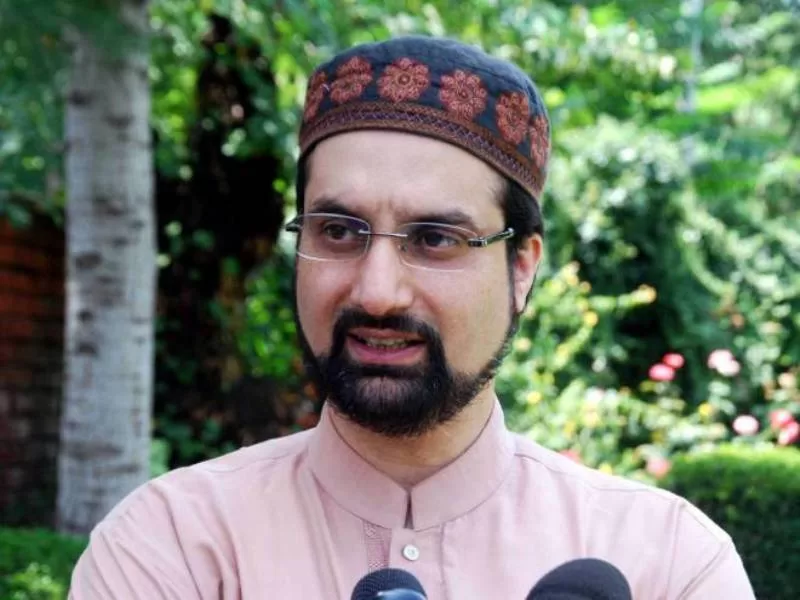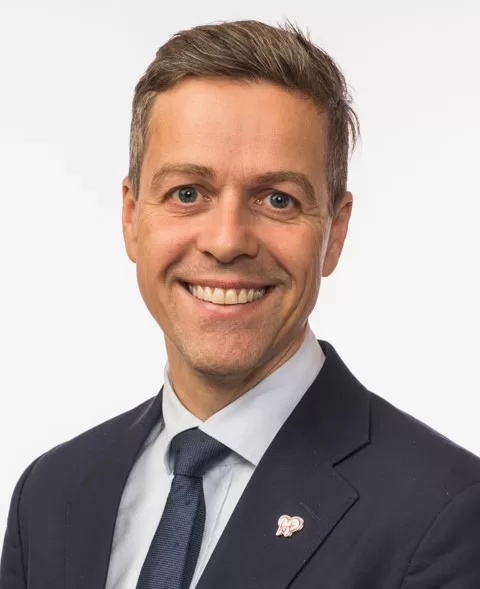Kashmir issue is on the agenda of the UN. Entire world, including India, acknowledges it as a dispute. However, Kashmir cause has not been able to attract required level of continuous sympathy at the international level. Nevertheless, there have all along been sporadic breezes of freshness through isolated efforts of Kashmiri and Pakistani diaspora. One such example was a Kashmir debate in the Norwegian parliament on May 23. And almost concurrently, European Parliament also adopted “Urgency Resolution” on the secret hanging of Afzal Guru. The proposed motion was discussed and unanimously voted in the European Parliament’s plenary session at Strasbourg. Resolution condemned the secret execution of Afzal Guru. Resolution also regretted the deaths of three young Kashmiris following the protests against Afzal Guru’s execution and called upon the security forces to exercise restraint in the use of force against peaceful protesters.
As regards discussion in Norway’s parliament, an interpolation entitled “Kashmir on the backdrop of withdrawal of foreign troops from Afghanistan in 2014” was submitted for a debate by the Chairman of the Norwegian parliamentary Kashmir Committee and Christian Democrat (KRF) Party leader Mr. Knut Arild Hareide. Mr. Svein Roald Hansen who highlighted the historical and humanitarian aspect of the conflict said, “There has been a conflict area with three wars, a strong military presence and repeated tensions and confrontations between India and Pakistan. It is a conflict that undermines fundamental human rights of 10 million people who live there.” Later talking to media, Knut said that Kashmir dispute can be resolved through the international mediation. He pointed out that in this regard the US and Europe has to do more to pressurise, especially India, to find a peaceful solution to this long standing dispute.
Debate in the Norwegian parliament lasted for nearly one hour; ranking parliamentarians from major political parties participated in the discourse. During the debate, Norwegian Foreign Minister Mr. Espen Barth Eide stated that it is very important to closely monitor and contribute to a united world community that seeks to assist both countries in this tense situation. He opined that the conflict between India and Pakistan has deep historical roots: “There are many challenges associated with Kashmir. I do not think that a solution will be found in a kind of breakthrough, where everything is suddenly negotiated and done”.
Mr. Knut Arild Hareide while warning both the countries for ignoring the Kashmir conflict, emphasized: “what more than anything else can destroy a better relationship between India and Pakistan is the conflict around Kashmir. This is a regressive wound in the relationship between governments and a continuing tragedy for the Kashmiri people. In the region there is a fear of a renewed wave of violence and terrorism after 2014.” Stressing on the need to improve the negotiating atmosphere he said “it is important that both these countries help build mutual trust and reduce fear and hatred. About execution of Afzal Guru in February this year, he said, Norway is against the death penalty and urges all countries to refrain from it. This is a principle which of course must apply in this region”. The Norwegian parliament has conducted debate on Kashmir for the second time, in a year, emphasizing for settlement of the Kashmir conflict. An earlier debate was held in September 2012, when the Norwegian parliament raised the issue of unidentified mass graves in the occupied Kashmir.
Kashmiri diaspora in Norway has indeed made commendable efforts to achieve the exquisite objective of moulding international public opinion in favour of their just cause. This shows that given the hard work and dedication, there is no reason why positive results cannot be achieved in highlighting the cause of Kashmiri people elsewhere.
Kashmiri leadership across the world has applauded this debate. Hurriyat Conference Chief Mirwaiz Umar Farooq has hailed the Norwegian Parliament’s recently conducted debate on Kashmir dispute “which has once again brought into focus the perils of this long standing dispute and its dangerous implications on international security and stability.” He described this effort as timely and most welcome step as it has recognized the necessity of the resolution of Kashmir dispute which besides bringing bloodshed and enormous miseries on the people of Jammu and Kashmir is posing a continuous nuclear warfare threat in this part of the world. Mirwaiz further said that “the Norwegian Parliament’s debate has encouraged the suffering people of Jammu and Kashmir and has made us hopeful that our sacrifices are not ignored and the world is taking note of our plight and sacrifices for a just cause.”

Mirwaiz has expressed hope that in the light of international concern over Kashmir issue and in the best interest of the people of the sub-continent, the governments of India and Pakistan will initiate a meaningful and time bound dialogue process for the resolution of Kashmir dispute without any further delay and include genuine leadership of the people in the process so as to find a just solution in accordance with the wishes of the people of Jammu and Kashmir.
Statistics from the “Institute for Conflict Management” which tracks fatalities in terrorist attacks in South Asia show that twice as many security forces personnel have been killed by freedom fighters during this year in the Kashmir Valley. Taking into account the most recent deaths, 19 security personnel have died so far this year. By comparison, in 2012, 17 security forces personnel were killed, and in 2011, the death toll was 30 such personnel. Security analysts attribute the recent increase in the number of Indian security personnel deaths to a deliberate strategy by the freedom fighters: carrying out more audacious and better-planned attacks on Indian security forces. Ajai Sahni, head of the Institute for Conflict Management said, “Previously, such attacks have been low-key and mostly unsuccessful… Now these attacks are seen as low investment and high profit activity…it creates the impression that if the policemen can’t protect themselves, then how can they protect people? “These attacks “are momentary efforts to send a very strong message,” Sahni added. MM Khajuria, a security analyst who has also served as the director general of police for Jammu and Kashmir, said, “They (attacks) are aimed at exploiting the public sentiment and creating a base for recruitment.”
These remarks acknowledge that spark of struggle for independence in the IHK is not only alive, but is kicking as well. And the barbaric suppressive acts of Indian security forced spread over decades have not been able to dent the will of Kashmiris of IHJ&K.
Kashmiris and Pakistanis living in other countries need to follow the footstep of Kashmiris residing in Norway and make concerted efforts to gain support of the public opinion of their respective host countries. Pakistani missions abroad and the Kashmir Committee of the parliament also have a special responsibility in this regard. There is a need to provide requisite support to the Pakistani diaspora in all the countries to highlight the atrocities being let loose by Indian occupation forces and the need for resolution of one of the oldest conflicts on the UN agenda. Notwithstanding the fact that “Human Rights” attract a lot of lip service and these have indeed become buzzwords of international politics, their application is selective. Unfortunately, we have not been able to effectively expose gross HR violations in the densest militarized zone of the world.
Hopefully, the new government would reinvigorate the effort towards drawing the attention of comity of nations towards settlement of Kashmir dispute in line with the aspirations of the people of Kashmir. Moreover, notwithstanding the settlement of the dispute, there is a need to grant provisional representation to the people of AJK and Gilgit Baltistan in the National Assembly and Senate of Pakistan.




